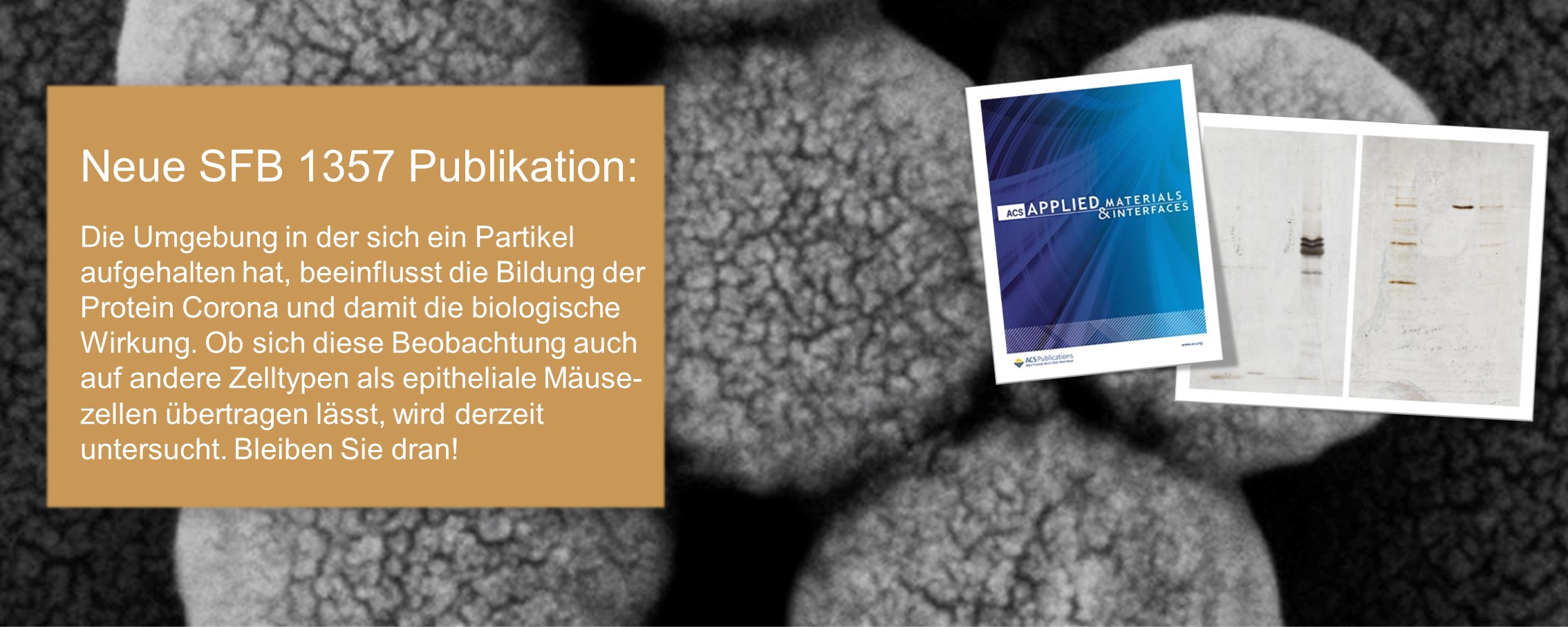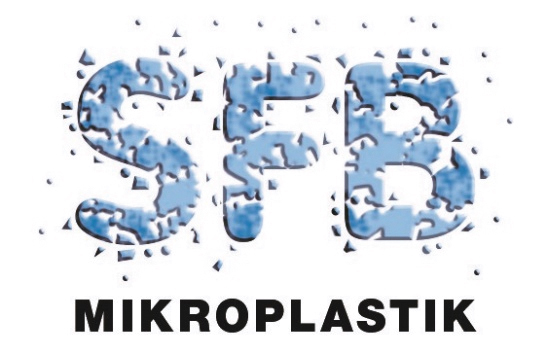News
Neue SFB 1357 Publikation: Jasinski (2022) - Tailor-Made Protein Corona Formation on Polystyrene Microparticles and its Effect on Epithelial Cell Uptake
04.10.2022

Herzlichen Glückwunsch an die A05 und A01 Teams: Julia Jasinski, Magdalena V. Wilde, Matthias Völkl, Valérie Jérôme, Thomas Fröhlich, Ruth Freitag und Thomas Scheibel zu ihrer spannenden neuen Publikation in der Zeitschrift Applied Materials & Interfaces:
"Tailor-Made Protein Corona Formation on Polystyrene Microparticles and its Effect on Epithelial Cell Uptake"
DOI: https://doi.org/10.1021/acsami.2c13987
Abstract: Microplastic particles are pollutants in the environment with a potential impact on ecology and human health. As soon as microplastic particles get in contact with complex (biological) environments, they will be covered by an eco- and/or protein corona. In this contribution, protein corona formation was conducted under defined laboratory conditions on polystyrene (PS) microparticles to investigate the influence on surface properties, protein corona evolution, particle–cell interactions, and uptake in two murine epithelial cells. To direct protein corona formation, PS particles were preincubated with five model proteins, namely, bovine serum albumin (BSA), myoglobin, β-lactoglobulin, lysozyme, and fibrinogen. Subsequently, the single-protein-coated particles were incubated in a cell culture medium containing a cocktail of serum proteins to analyze changes in the protein corona profile as well as in the binding kinetics of the model proteins. Therein, we could show that the precoating step has a critical impact on the final composition of the protein corona. Yet, since proteins building the primary corona were still detectable after additional incubations in a protein-containing medium, backtracking of the particle’s history is possible. Interestingly, whereas the precoating history significantly disturbs particle–cell interactions (PCIs), the cellular response (i.e., metabolic activity, MTT assay) stays unaffected. Of note, lysozyme precoating revealed one of the highest rates in PCI for both epithelial cell lines. Taken together, we could show that particle history has a significant impact on protein corona formation and subsequently on the interaction of particles with murine intestinal epithelial-like cells. However, as this study was limited to one cell type, further work is needed to assess if these observations can be generalized to other cell types.

